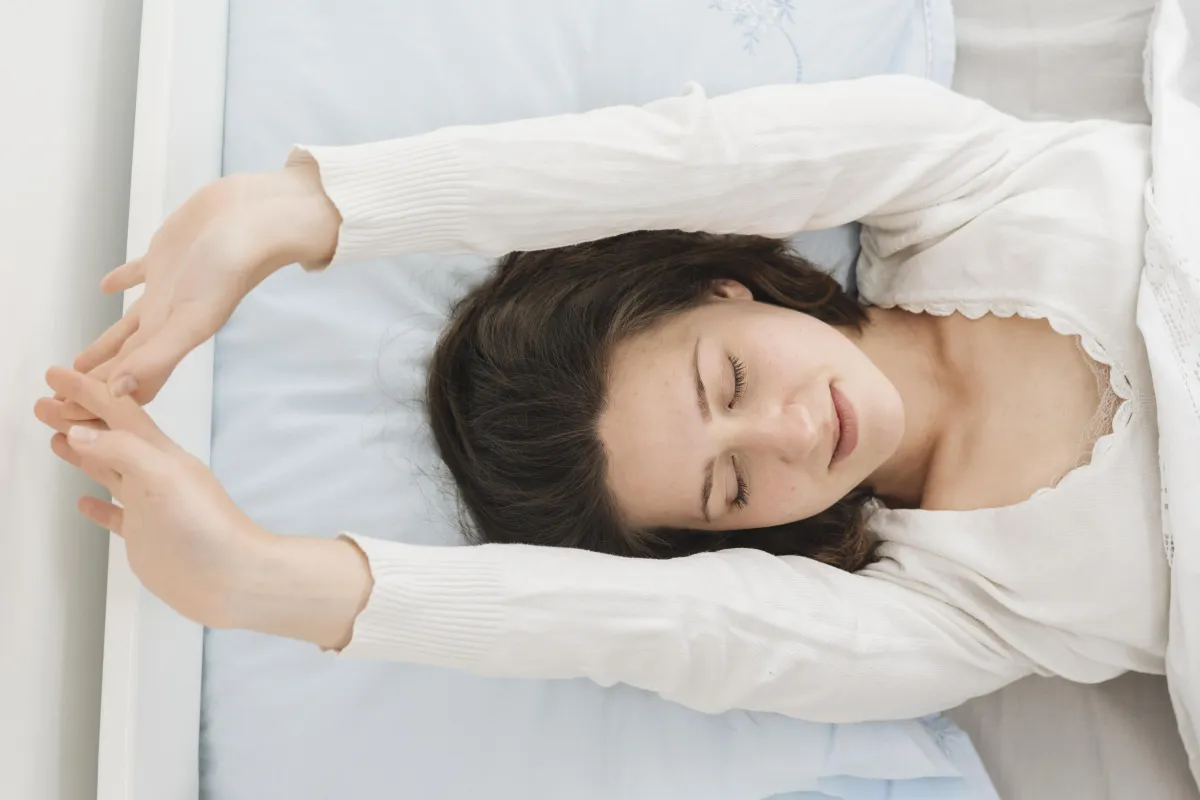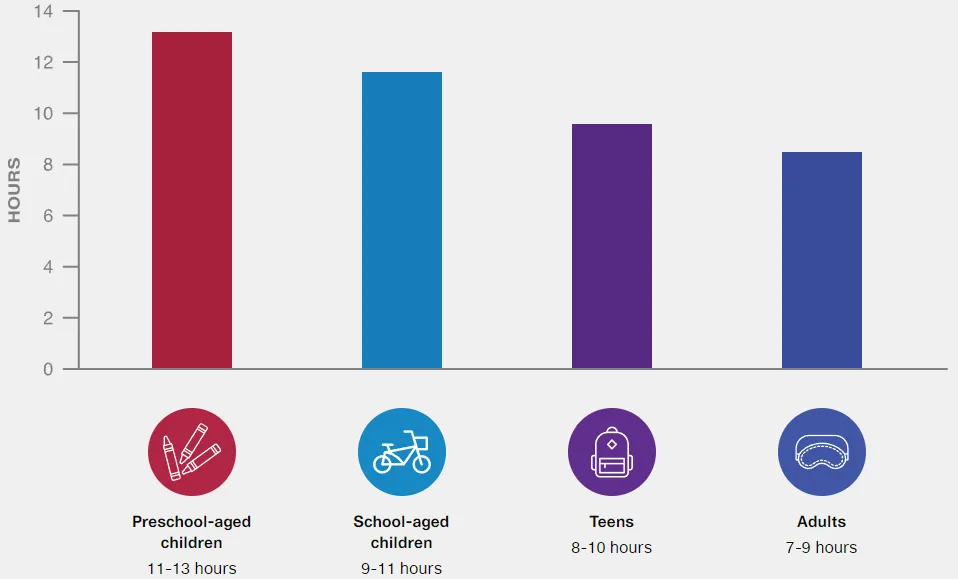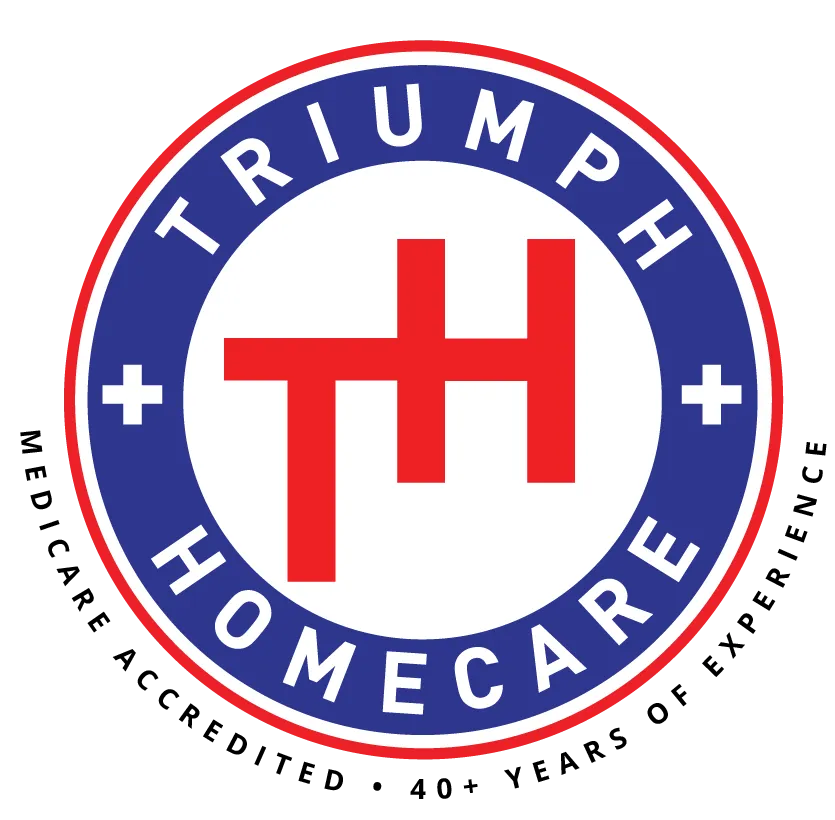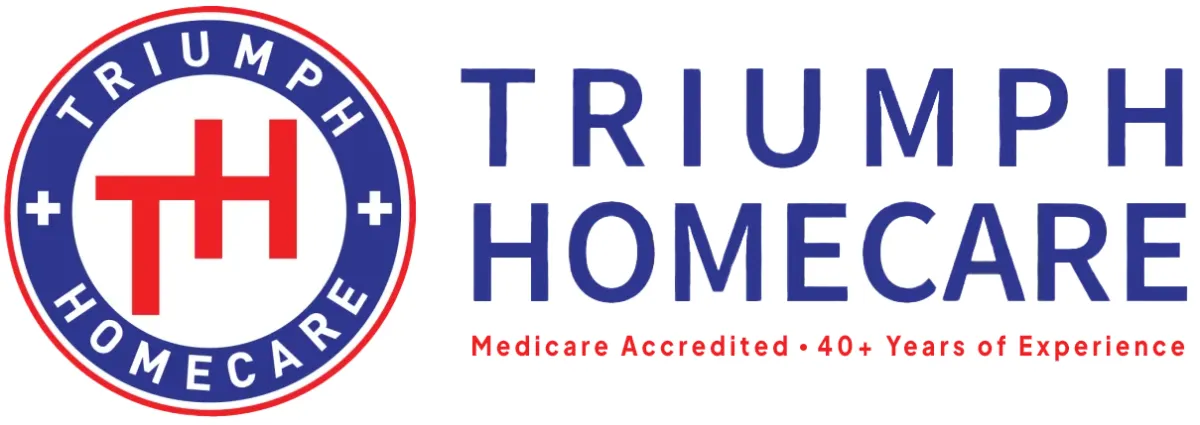Call us today for a BRAND NEW oxygen concentrator for just $1,295!
Why is sleep important?
To understand why sleep is important, think of your body like a factory that performs a number of important functions. As you drift off to sleep, your body begins its night-shift work of recharging.
Scroll down to learn more about sleep benefits, recommendations and our top sleep tips.

What are the benefits of sleep?
Sleeping helps you stay healthy because it gives your body the chance to:


Heal damaged cells

Boost your immune system

Recover from the day’s activities

Recharge your cardiovascular system
How much sleep do I need?
What's considered to be a healthy night's sleep varies by age.

Top questions about sleep answered
What are the four stages of sleep?
REM stands for rapid eye movement and NREM stands for non-rapid eye movement. NREM sleep comes first, followed by REM sleep. Then the cycle starts again.
The first three of the four phases are part of your NREM sleep. They can last between 5 and 15 minutes.
Non-REM sleep
Stage 1: This is when your eyes are closed but it’s still easy to wake you up.
Stage 2: This is when you’re in a light sleep. As you prepare for deep sleep, your heart rate slows down and your body temperature drops.
Stage 3: This is considered the deep sleep stage. It’s harder to wake you up at this point, and if someone does, you’re more disoriented.
REM sleep
Stage 4: REM sleep typically occurs 90 minutes into your sleep and is the stage of sleep when you dream. Your brain is more active and your heart rate and breathing quicken. Adults can spend about 20% of their sleep in the REM stage while babies can spend about 50% of their sleep in this stage.
What's the most important phase of sleep?
Both REM (rapid eye movement) and NREM (non-rapid eye movement) serve as important phases in sleep and for different functions in your body.
REM sleep, which is when dreaming occurs, helps our mind process emotions and memories. It is vital for stimulating the brain for learning.
NREM makes up 75-80% of total sleep each night. Many of the health benefits of sleep take place during NREM like tissue growth and repair. Also, energy is restored and hormones important for growth and development are released.
What happens when you're sleep deprived?
When you don’t get the sleep you need, you might find yourself:
Feeling drowsy, irritable and sometimes depressed
Struggling to concentrate and make decisions at work
Craving more unhealthy foods, which could cause weight gain
I always feel tired. Should I be worried?
If you’ve been practicing good sleep habits and think you’re sleeping well but still feel extra tired in the morning, then you may have a sleep disorder like sleep apnea. Any problems with your sleep should be discussed with your doctor who may recommend you take a sleep test.
ResMed also offers a free sleep assessment to help determine if you’re at low or high risk of sleep apnea.
Five tips to help you get a good night’s sleep
It’s more than just getting to bed at a good time.

1. Plan enough time for sleep.
Once you know what
time you need to get to
bed, plan the rest of
your schedule around it.
2. Create consistent sleep habits.
Follow a pre-sleep ritual for
going to bed and waking
up at the same time.
3. Create a comfortable sleep environment.
Make sure your bedroom
is cool, quiet and comfortable
- especially your bed and pillow.
4. Turn it off before bed.
Watching television, reading,
emailing and texting can ramp
up your brain activity rather
than relax it. Give yourself
time to unplug.
5. Use sleep technology.
The SleepScore app by SleepScore
Labs™ measures your breathing
and sleep habits to provide slee
advice and recommendations.
Fun sleep facts
Adults sleep less than they should
75% of adults studied sleep less than the
minimum seven hours recommended by the
American Academy of Sleep Medicine.
Women sleep longer than men
Men sleep for an average of 5 hours, 46 minutes,
while women average 6 hours, 11 minutes.
Exercise is good for sleep
Any amount is helpful, but the optimal amount is
30 minutes, which leads to 14 minutes of extra
sleep per night.
Caffeine consumption
Three or fewer cups of coffee doesn't notably
affect sleep time, but four cups or more leads to
26 fewer minutes of sleep.
Mattresses matter
Mattress selection appears to make an average of
20 minutes difference of sleep per night.
Sleep tips video gallery
Keep exploring
What causes snoring?
Learn about the surprising causes
of snoring and CPAP therapy as an
effective snoring treatment option.
What is sleep apnea?
Find out the causes and symptoms
of sleep apnea and how you can
treat your sleep apnea with CPAP
therapy.
Do I have sleep apnea?
Take our free sleep assessment
today and find out if you might be
at risk for sleep apnea in just 3
minutes.
References

Source: Benjafield AV et al. Estimation of the global prevalence and burden of obstructive sleep apnoea: A literature-based analysis. Vol 7:8; 687-98. Lancet Respir Med 2019

Triumph Homecare
At Triumph Homecare, we are proud to stand as the nation’s top provider of high-quality oxygen solutions. With over four decades of experience, we specialize in delivering reliable and innovative oxygen products tailored to meet the diverse needs of our customers. From state-of-the-art portable oxygen concentrators to robust medical-grade oxygen systems, our commitment to excellence ensures that every client receives optimal support for their health and well-being. Our team of experts is dedicated to advancing oxygen technology and service standards, ensuring that
Triumph Homecare remains at the forefront of the industry. Trust us to enhance your quality of life with the best oxygen solutions available in the USA.
Links



